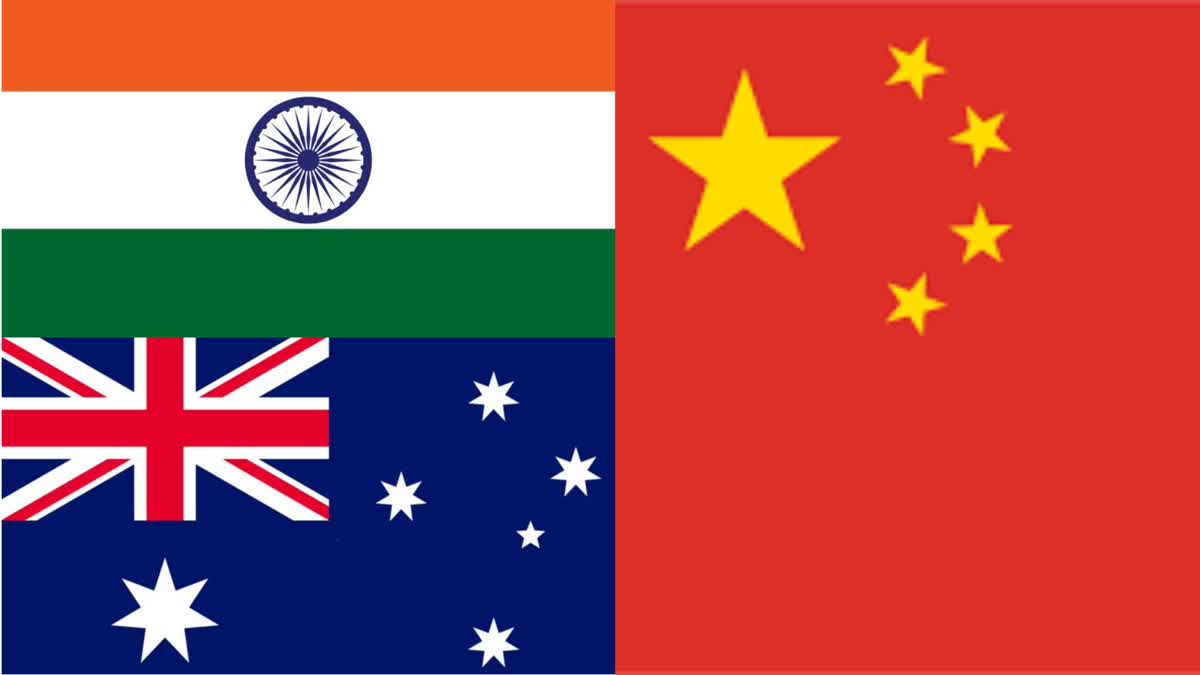New Delhi : The 6th India-Australia Maritime Security Dialogue held on Tuesday, August 13 in Canberra, was an opportunity for both sides to discuss ways to sustain a safe and secure maritime environment conducive for inclusive growth and global well being. The Indian delegation was led by Muanpuii Saiawi, Joint Secretary, Disarmament & International Security Affairs, Ministry of External Affairs and the Australian delegation was led by Sarah Storey, First Assistant Secretary, South Asia & Central Asia Division, Department of Foreign Affairs and Trade and Bernard Philip, First Assistant Secretary, International Policy, Department of Defence.
They exchanged views on various topics of mutual interest, including the maritime security environment in the Indo-Pacific region, maritime domain awareness, Humanitarian Assistance and Disaster Relief (HADR) coordination, regional and multilateral engagements and sustainable use of marine resources. This included cooperation in Search and Rescue (SAR), pollution response, blue economy and Port State control. The two sides conferred on ways to sustain a safe and secure maritime environment conducive to inclusive growth and global well-being.
The leaders exchanged views on various topics of mutual interest, including the maritime security environment in the Indo-Pacific region, maritime domain awareness, Humanitarian Assistance and Disaster Relief (HADR) coordination, regional and multilateral engagements and sustainable use of marine resources. This included cooperation in Search and Rescue (SAR), pollution response, blue economy and Port State control. They discussed ways and means of further strengthening their bilateral cooperation in these areas. They also conferred on the way ahead for collaboration in the maritime ecology pillar of the Indo-Pacific Ocean Initiative (IPOI). It was agreed to hold the next round of the dialogue on a mutually convenient date in New Delhi.
India-Australia shared vision of maritime cooperation
India and Australia share a strategic vision for maritime cooperation, driven by their mutual interests in ensuring a free, open, and inclusive Indo-Pacific region. This vision has been shaped by the growing maritime challenges in the region, such as piracy, illegal fishing, and the rising influence of China.
In 2020, India and Australia elevated their bilateral relationship to a Comprehensive Strategic Partnership, emphasizing cooperation in defense, cybersecurity, and maritime security. This agreement allows both nations to use each other’s military bases for logistics and refuelling, enhancing their naval reach and operational capabilities in the Indo-Pacific.
A biennial bilateral naval exercise that focuses on strengthening interoperability between the Indian Navy and the Royal Australian Navy. It includes advanced warfare drills, anti-submarine warfare, and coordinated naval manoeuvres.
India and Australia, along with the United States and Japan, participate in this annual quadrilateral naval exercise. It serves as a platform for enhancing multilateral naval cooperation in the Indo-Pacific. India and Australia collaborate on enhancing MDA, which involves sharing information about maritime activities, particularly in the Indian Ocean Region (IOR). This includes satellite-based surveillance and data sharing to monitor maritime traffic and potential threats.
Both countries engage in capacity-building initiatives, including training programs for their naval personnel. This cooperation extends to areas such as submarine operations, disaster response, and search and rescue missions. India and Australia work together to provide Humanitarian Assistance and Disaster Relief in the Indo-Pacific, particularly in response to natural disasters. Their joint efforts in this domain demonstrate a commitment to regional stability and security.
The two nations also collaborate on promoting the sustainable use of ocean resources, known as the blue economy. This includes cooperation in fisheries management, marine biodiversity conservation, and addressing climate change impacts on coastal communities. India and Australia’s maritime cooperation reflects their shared commitment to upholding international law, particularly the United Nations Convention on the Law of the Sea (UNCLOS) and ensuring that the Indo-Pacific remains a region of peace, stability, and prosperity.



